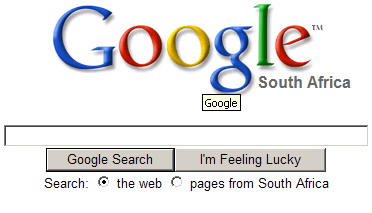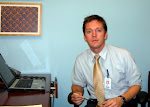
This is Part 2, continued from previous posting. (See below.)
...The search terms “Africa” and “Bible” had several billion hits.
I first browsed a site on “The Africans Who Wrote The Bible”, where the author of the so-titled book passionately explained that black ancient Egyptians were primarily responsible for the book. A bible history site pointed out that only part of Africa—again, Egypt—was known by the Hebrews, and perhaps those countries now known as Libya. Next, in “Reading the Bible from an African Perspective”, the author explained matter-of-factly that “a literal reading of the Bible is the most acceptable reading in churches in Africa.” I imagined a few word substitutions: “A [monolithic] reading of the [African sub-continent] is the most acceptable reading in [libraries] in [the West],” and this made me grin.
But, it was time to get serious. I tried again, typing “Botswana and religion.” Wikipedia popped up and taught me that an estimated 70 percent of Batswana identify themselves as Christians, with Anglicans, Methodists, and the United Congregational Church of Southern Africa making up the majority of these. About 5,000 of Botswana’s 1.7 million inhabitants are Muslim, primarily from South Asia. (I drive by a large mosque every day on the way into clinic. In front, a sign reads “Islam Welcomes You.” Botswana’s CDC office neighbors an impressive minaret and dome.) Botswana is also home to ~3,000 Hindus and ~700 Bahá'ís. Six percent of citizens are practitioners of an indigenous religion called Badimo, and approximately 20 percent of citizens espouse no religion.
I found this breakdown of affiliations interesting, but it worsened my confusion.
No matter where one lives, the rules of cultural engagement guide almost everything. Failure to learn and obey them risks much (relationships, professional effectiveness, etc). But, no matter where we live, sometimes the rules are hard to predict, especially if religion is involved. For example, during a staff meeting in Swaziland, the meeting chair once insisted that the opening prayer be repeated after a colleague of mine, a US pediatrician, read a beautiful Buddhist prayer (the Metta Karuna Prayer, I believe).
Talking about God in any context is of course complicated. In university, I briefly considered 'the ministry' as a profession, but in the end, preferred clinical science, a vocation with tangibility and rules/methods that enjoy near universal acceptance. Simply put, at the time, science seemed safer. Now I can say with confidence: Still does.
I half-heartedly googled “safe bible versus”. This was not helpful. So, having no other choice, I decided to use common sense.
This concludes Part 2. To be continued...

No comments:
Post a Comment